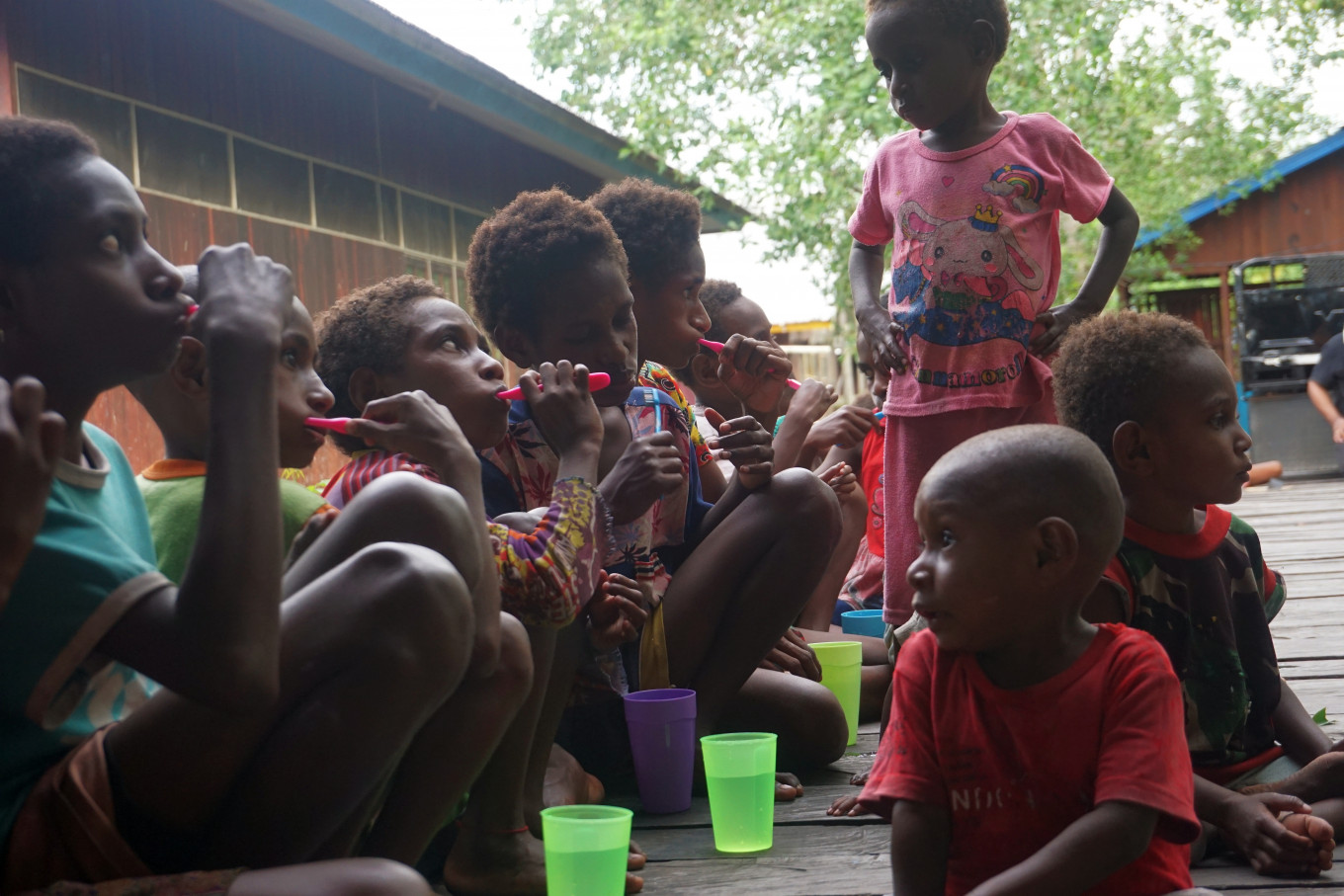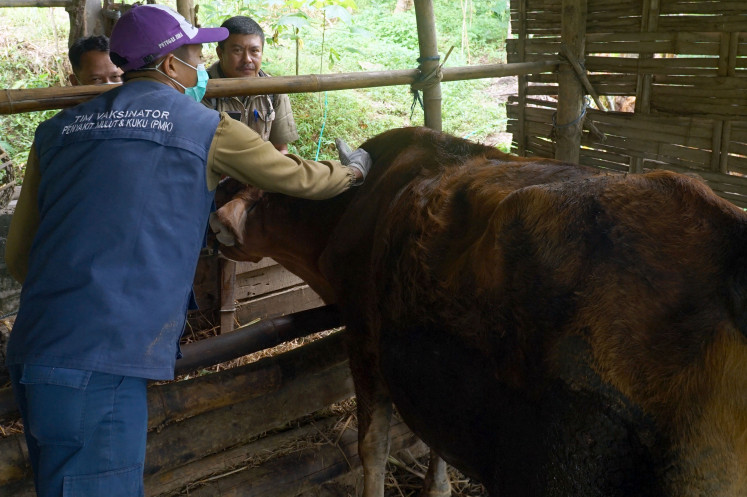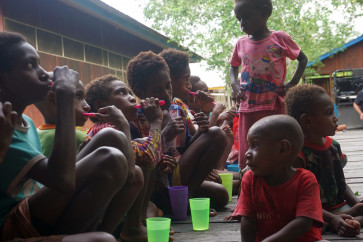Popular Reads
Top Results
Can't find what you're looking for?
View all search resultsPopular Reads
Top Results
Can't find what you're looking for?
View all search resultsChildren of the mangroves: Keeping education, health accessible in Asmat
With one of the lowest road densities and highest school dropout rates in the country, Asmat’s youth struggle to access basic care and education in a swamp-filled, disconnected regency that is 37-time the size of Jakarta.
Change text size
Gift Premium Articles
to Anyone
D
entist Djunaidi “Eddy” Watuwetan from the local community health center (Puskesmas) in Agats, Asmat, began his session of teaching dozens of local children on the importance of dental health with reminders to brush twice daily and not to share toothbrushes.
These habits, he said, are often overlooked in households where parents do not enforce them.
He also warned the children, some barely toddlers, others already teenagers, against a far more common local habit: chewing pinang, or betel nut.
Chewing pinang, typically mixed with lime, sirih leaves and sometimes tobacco, is widespread across Indonesia and Southeast Asia. But, its consequences are far-reaching.
A 2024 report by the International Agency for Research on Cancer linked the practice to 31 percent of global oral cancer cases, with some 600 million people chewing it regularly.
“I think it’s ironic that chewing pinang is seen as part of local culture, when the plant isn’t even native to this area,” Eddy told The Jakarta Post in early June.
“I’ve seen children as young as four or five already addicted to pinang, with their teeth and gums badly discolored.”


















